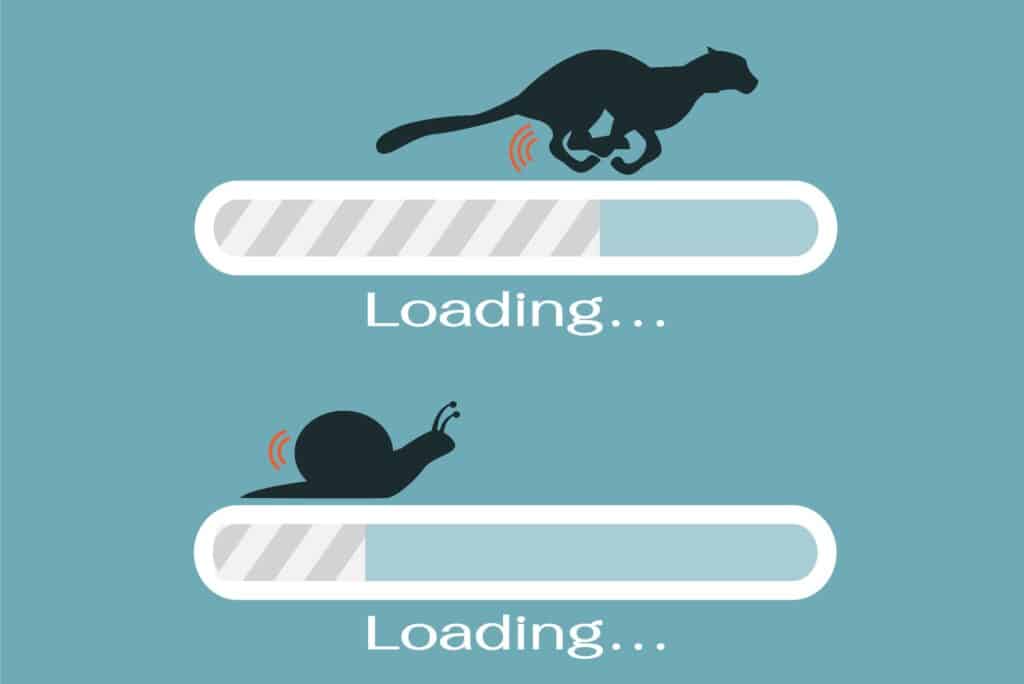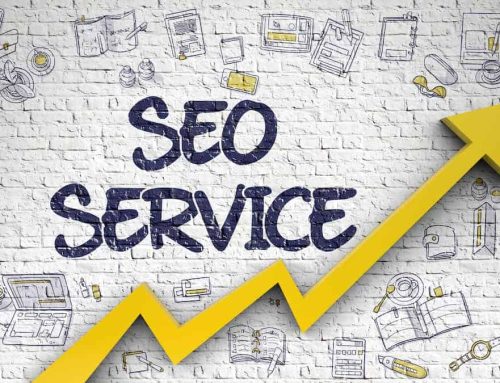Page load time or web page speed basically refers to the amount of time it takes for visitors to see the content of your website as soon as they open the web page.
Every website or e-commerce owner wants his or her site to open faster, reduce exit rates, and increase conversion rates.
However, studies show that one of the main reasons why most potential customers exit web pages is probably because of slow web page loading.
Why It’s Important to Have a Fast Loading Website
Why does web speed matter?
To understand the importance of fast loading websites, consider the following statistics on page load time:
- Studies show that visitors generally form an opinion about your website and its content just 0.05 seconds after your website loads. The faster your website loads the better or more positive opinion users have about your business.
- Close to 70% of consumers agree that web page loading speed influences their likelihood to buy.
- Over 57% of visitors exit a website that takes more than 3 seconds to load.
- 3 of the top 4 SEO user experience factors are related to web page loading speed.
Here’s what the above statistics imply when it comes to the importance of website speed.

Website Loading Speed Has an Influence on Your SEO
Google has been using website speed as a ranking factor since 2010. According to Google, speeding your website isn’t only important to the website owner but to all users of the Internet as well. A fast loading website creates happy Internet users, better user experience, and even reduces operating costs.
In fact, Google considers high bounce rates as a sign that the website doesn’t provide the expected value or meet the user’s needs and therefore not worth ranking high on search results.
Website loading speed has a great influence on your overall SEO success. The faster your website loads in 2020, the better your chances of ranking higher for your selected keywords.
Website Speed has an Influence on Conversion Rates
Studies by Google show that 53% of mobile site visitors normally exit a website or page that takes more than 3 seconds to load.
Slow loading sites have higher bounce rates which means lower conversion rates. You will lose more leads and customers if your website doesn’t load fast enough.
Website Loading Speed Affects Your Bottom Line
Close to 70% of consumers say that page speed influences their purchasing decision which means a slow loading website will ultimately affect your bottom line.
Google found out in recent studies that a decrease of 1 second in page speed has the potential to lower conversion rates by 7% or more.
Slow website loading speed could be the reason why visitors exit your site without interacting with the content and making you lose more revenue.

Average Page Load Speed in 2020
You should always focus on making your website load as fast as possible but if you want to know how fast a website should load in seconds, consider the following statements.
- According to the latest Unbounce Page Speed Report, the average mobile website load time was about 15 seconds.
- 57% of Internet users will hit the exit or back button if the site doesn’t load in 3 seconds. Clearly, website owners need to make their site 5 times faster to meet the expectation.
More importantly, keep in mind that the micro-moment mentality is always on the rise and people are becoming more impatient with time.
They want results instantly and if your website doesn’t deliver the expected results fast, consumers have a lot of other quicker options to explore.
Factors That Affect Webpages Speed
Websites operate almost the same way. According to a report by Yahoo Developers, 80% of a website’s loading time is spent on rendering coded elements on the web page. These are the factors that affect the speed at which your website loads.
There are many elements in every website including style sheets, images, contact forms, and plugins just to mention a few.
Each element included in your website has a certain weight and the heavier the element is the longer it takes to render.
This basically means that a website with a lot of heavy elements such as big images will have a longer page loading time.

How Business Owners Can Assess Their Website Speed
Fortunately, there are many online resources that you can use to test the loading speed of your website. For the best results, consider using a combination of loading speed testing resources.
Here are a few examples of websites that you can use to measure your website’s loading speed:
- Google Page Speed Insights: This is a good web page loading speed testing resource from Google. It even gives you actionable insights on what you can do to optimise your site’s loading speed.
- WebPage Test: This is one of the best sites for measuring the performance of your website with results collected from real browsers and the most common operating systems.
Other professional site speed monitoring websites include GTMetrix and SpeedCurve.
How to Speed Up Your Own Website
Here are a few tips on how you can speed up your website’s loading speed:
- Optimise your images for faster loading. You can do this by compressing all images on your site using programs such as app
- Try to have as few elements in your content whenever possible. To make your pages lighter, try to combine your files and reduce HTTP requests. For example, you can combine scripts and CSS elements into a single style sheet.
- If a website is cached, the user won’t need to load all the elements from scratch every time they visit your website so try to cache the website as often as possible.
- Avoid having too many 301 redirects that normally trigger an additional HTTP request and response cycle.
- You can also compress the entire site and reduce its weight by up to 70% using compression methods such as Gzip.
Conclusion
So how fast should a website load in 2020? Well, the short answer is as quickly as possible.
According to Google, page load time should be accomplished in less than two seconds. Google goes further to state that two seconds is within the threshold for “e-commerce website acceptability” but you should aim for website loading speeds of under half a second.
If you have tried the tips mentioned above without success, you may need to consult a professional website designer or an SEO consultant to do a full website audit and find out what’s actually affecting your page load speed.
Check out our guide as well on how to speed up your website to ensure it ranks high in Core Web Vitals scores.






